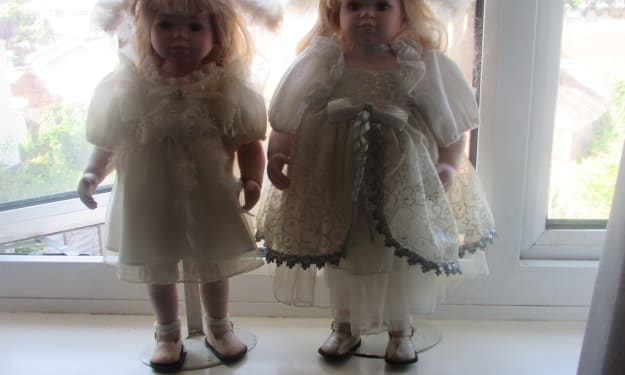We Must Stop Stigmatizing Mental Health
A Story Written from the Heart, and a True Experience of Stigma

"She's mentally ill, therefore she is violent." Time and time again through my own long experience of mental health problems, and as a mental health champion, have I heard this. Yes, it is true, there are some mental health problems that can be violent at times, but it is THE 'mental health problem,' not the person, who is violent.
I remember my diagnosis of EUPD and PTSD. There were many times when I found myself in some scary positions due to the vulnerability of the abuse I had gone through before I was diagnosed with both these conditions. Domestic violence, rape, child abuse, community violence, bullying at school, and much more. I became ashamed of myself so much, that even when I needed to take a stand, being abused became so normal to me, that I couldn't recognize the abuse in the first place. To add to my confusion, when I did finally try talking about it, I usually got told, "It's the illness talking, not you." This attitude led to me being further victimized, and eventually I put up with it and stopped talking, because the stigma got worse, and I found myself accused of being violent or doing something wrong when I spoke out. However, despite my diagnosis, I am not violent; in fact I am the opposite, I am very sensitive and usually the one who gets hurt. The main reason that people think everyone who is diagnosed with EUPD is violent is because in the DSM, it is listed as a symptom amongst many other clusters.This is where we have to be very careful with EUPD and other personality disorders; just because a person fits a cluster of symptoms does not mean "one fits all." The symptoms are different for each individual, and where one may have a symptom of violent behaviour, another may not.
"Oh my god, is she mad? She must be off her head." This statement I find is aimed at me and many others with PTSD quite a lot. It is stigmatizing and hurtful to the sufferer, because it labels her as "crazy" even though you may not know what is going on, or what she is like when she is not ill. I often describe PTSD like a camera or film screen inside my head which is on repeat, and constantly replaying the same episode over and over again. Think about a song, or a scene from a film you can't get out off your head; you may have a mixture of good and bad images. This is what happens when someone has a flash back, or freezes and panics. Certain images, smells, sights, sounds are enough to trigger these episodes. For me it is cars, violence, crowds and fires, because they bring back severe trauma from the past. Many people tell me to "get over it" or "move on, it's your past, your not there any more." Again, this too is stigma, because I know I'm not there any more, but if a smell, sight, or sound triggers it, it can really send me back there, and telling someone to get over it is like me telling someone not to be permanently physically disabled even though they can't help it. Mental illness is like physical illness or injury, it needs time, patience, help and sometimes therapy, and healing does not happen over night, only you can see a broken leg, but you can't see the damage inside someone's heart or head.
Another thing I come across is, "She can't parent, she has a mental illness," and, "She will hurt her children." The problem with EUPD is it does cause emotional instability; some react with crying and there are sadly some cases where some will react in ways that appear violent. Again, this is NOT the person, it is the illness, and many do not recognize it. The behaviour in most cases has been learned, sometimes through a neglectful and abusive childhood, and also prolonged experience to violent and volatile relationships. It does not mean the person cannot parent and will hurt her children. With much help and support, many do go on to successfully parent their children by themselves, but for others, it may mean sharing the care with others to protect the children while helping themselves. Most parents with EUPD do love their children, but they do sometimes struggle with boundaries like I did during my time with EUPD myself. However, as I found out, boundary setting is taught in Dialectal Behavioural Therapy which is offered to people with EUPD/BPD for treatment; to reassure you, I find this very useful in setting boundaries now, which in the past, I really struggled with. If you speak with your mental health team, they can tell you more about DBT. Also, there are a lot of informative videos on DBT on YouTube and across the web.
I wrote this article with stigma in mind; however, my focus was on EUPD and PTSD because EUPD is my past experience of mental illness, and PTSD is what I am continuing to recover from now. The advice and explanations of stigma in my article can apply to any mental illness, including depression, anxiety, bi-polar, and many more. I have written this article primarily based on my own experience off stigma and experiences I have learned from other people with mental health problems while championing with time to change. I really hope my article is informative and has helped you in some way to recognize and try to lesson the stigma faced by people with mental health problems every day. Doing this, we can make life more comfortable for everyone because 'A book should never be judged by its cover, just as a person should never be judged by looks.'
About the Creator
Carol Townend
Fiction, Horror, Sex, Love, Mental Health, Children's fiction and more. You'll find many stories in my profile. I don't believe in sticking with one Niche! I write, but I also read a lot too.






Comments
There are no comments for this story
Be the first to respond and start the conversation.